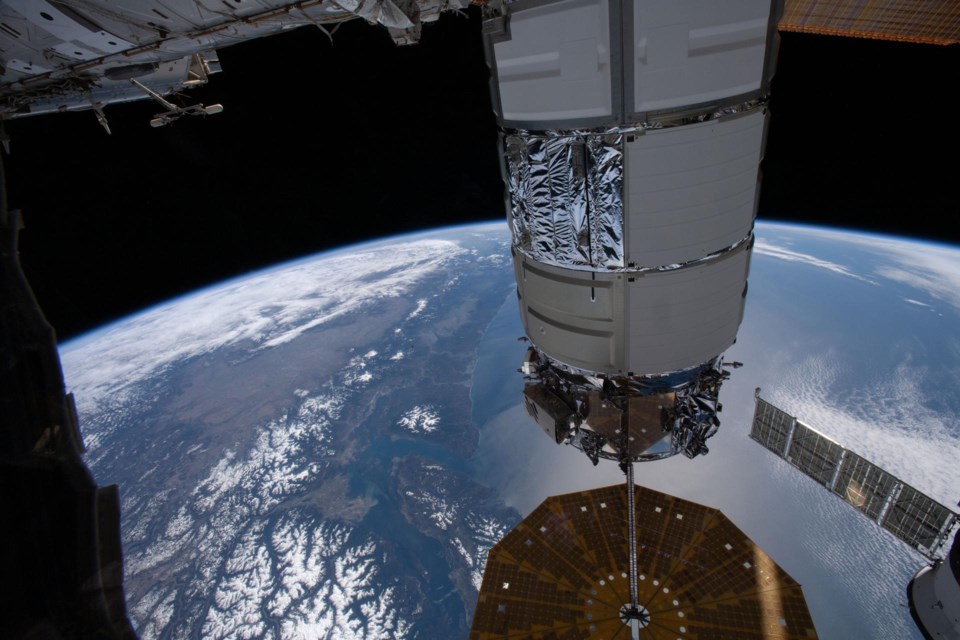We all know Vancouver is out of this world. But what does Vancouver look like when you're off of this world?
NASA, the Canadian Space Agency (CSA) and the European Space Agency (ESA) have published thousands of photos over the years, capturing Earth (and space) in all sorts of situations, including our fair city.
This collection of photos ranges from 1973 (when Skylab was aloft) to the forest fires of 2022.
Some photos are just spectacular and unusual perspectives of Vancouver, like the photo from 1992 with the back tip of the space shuttle Endeavour cutting through the Salish Sea between the island and the city. More recently the International Space Station passed over in April of 2021; a photo was snapped through the ISS's structure, with Vancouver far below.
Natural events have also been captured, from a massive phytoplankton bloom that spread along the Canadian and American coasts in 2006, to a snowy morning just after Christmas 2021. A photo by astronaut Ricky Arnold from 2018 catches the light reflecting off a very still Salish Sea, glinting back to the camera like a massive mirror the size of a small country.
There are also a couple of photos of Vancouver at night with twinkling streetlights marking the photo like a road map (with the ski hills very prominent. One is even taken by famed Canadian astronaut Chris Hadfield.
The city is big in some photos, but in others, the frame really captures a massive area, including the sun bouncing off northern Vancouver Island. In one panorama Vancouver is visible, but hardly prominent, as the photo includes pieces of Oregon and Washington states, along with all of Vancouver Island and much of B.C. until it disappears over the horizon.
And in another spectacular panorama, almost all of B.C. fits inside the frame along with Calgary and the Rockies in the foreground. The Columbia watershed can be seen on the left with northern B.C. on the top, disappearing over the horizon.






